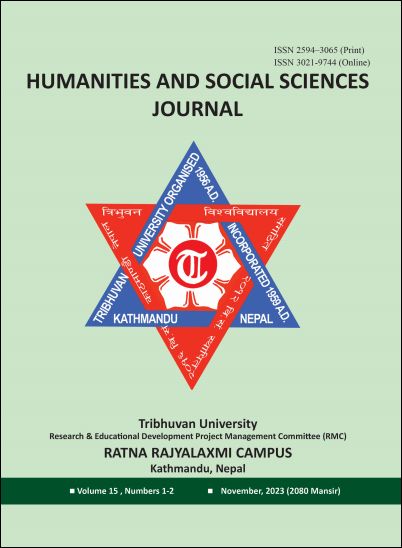Discourse on the Classification of Information in Nepal
DOI:
https://doi.org/10.3126/hssj.v15i1-2.63779Keywords:
limited exception, right to information, classification of information, public bodies, principle of maximum disclosureAbstract
Even after one and a half decades since the implementation of the Right to Information (RTI) Act in Nepal, the classification of information tasks has not been completed. Although attempts were made to classify the information three times during this period, none of the classifications were valid, and there was difficulty in the implementation of the RTI Act. This study has employed the principle of maximum disclosure, and the contents have been analyzed by adopting descriptive and explanatory methods. Instead of being active by classifying information to fulfill the policy objectives of the RTI Act, such as making the functions of the state open and transparent in accordance with the democratic system, making it accountable and responsible to the citizens, and making the access of citizens simple and easy to the information of public importance held in public bodies, the state has become indifferent.




